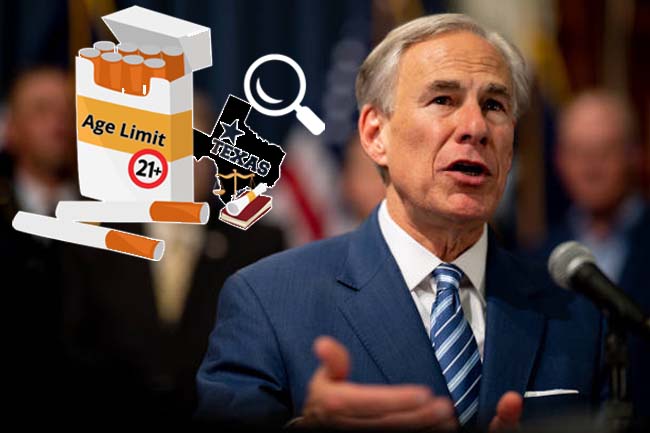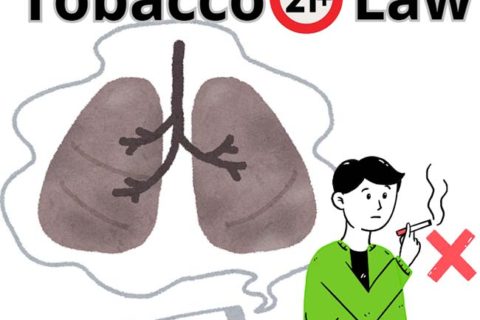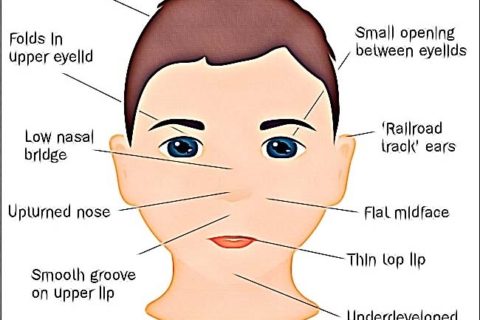Every state has its own law on the use of tobacco, including the age restriction. Texas is one of the 16 states that raised the minimum age for tobacco, prohibiting people under that age from buying tobacco products.

Increasing the age to buy tobacco products is an effort to reduce the use of tobacco among young Texans. That’s why the Governor of Texas, Greg Abbott, has signed Senate Bill 21 into law. So, what does the law say?
Here’s everything you can know about the Texas tobacco age law!
Texas Tobacco Age Law
Following the federal law in Title 21, Chapter 9, Subchapter IX of the United States Code regarding the prohibition of selling all tobacco products, including e-cigarettes, to people under the age of 21, Texas finally legitimized a 2019 law regarding the minimum age requirements for purchasing tobacco.
Further, this federal law is also known as “Tobacco 21” or “T21,” which was signed by the President on December 20, 2019.
The T21 law actually bans Texas under the age of 21 from purchasing tobacco and nicotine products, meaning they can only do so after their 21st birthday.
The Texas tobacco age restriction law is in Chapter 161 of the Texas Health and Safety Code. (https://statutes.capitol.texas.gov/Docs/HS/htm/HS.161.htm)
Unlike the federal law, the Texas tobacco law made exemptions for:
-
- People who are 18 years old or older and have a valid U.S. or state military ID,
- People who were born on or before August 31st, 2001.
This law prohibits all tobacco products, including:
-
- Cigarettes
- Electronic cigarettes (e-cigarettes) and e-liquids
- Smokeless tobacco
- Pipe tobacco
- Hookah tobacco
- Cigars
- Other tobacco products.
And of course, it aims to keep tobacco products out of public schools by creating more “social distance” between younger students.
Read also: How to Detox from Alcohol at Home Safely
Implementation of the Texas Tobacco Age Law
In the case of the implementation of the tobacco age restriction law, there are some rules and restrictions, especially in the distribution of tobacco products across Texas. Sure, all Texas law enforcement officials are responsible for compliance inspections of tobacco retailers.
The following are details on how the Texas tobacco age law applies:
-
- Retailers are required to verify a person’s age with photo identification containing the person’s date of birth unless the person is over 26 years old.
- Retailers are only permitted to sell cigarettes and tobacco through direct, face-to-face exchanges between retailers and consumers.
- Retailers are prohibited from displaying cigarettes and smokeless tobacco in self-service stores where buyers can pick them up themselves.
- Texas prohibits giving free coupons and distributing samples of tobacco products, including e-cigarettes, to those under 21.
- Texas prohibits the redemption of free coupons and samples of cigarettes and other tobacco products by mail or courier delivery.
- The cigarette industry is prohibited from advertising tobacco products within 1,000 feet of public or private schools and churches.
- Texas prohibits the tobacco industry from selling cigarettes in packs of less than 20 pieces and as single cigarettes.
- Cigarette advertisers are required to include text health warning signs or warnings about sales to underage persons posted on posters or near vending machines.
- Texas requires tobacco companies to disclose any additional constituents present in tobacco products other than tobacco and water.
- Texas requires tobacco manufacturers to disclose the nicotine yield for each brand of cigarette.
- Texas imposes a bond limit for appealing a tobacco liability violation of $25 million.
Consequences of Violating the New Texas Tobacco Law
Those who are caught breaking the new law—according to what is contained in Senator Bill 21—may face a Class C misdemeanor and a fine of up to $500.
Typically, consequences given to violators include:
-
- Fines,
- Alternative penalties such as suspension of a driver’s license or learner’s permit, attending an education or smoking cessation program, or performing community service
In addition to smokers, tobacco retailers will also receive punishment, i.e., a fine of up to $500, if they’re caught selling tobacco products to those under 21 years of age.
It’s important to note that punishing children has not been proven to be effective in reducing underage tobacco use.
Otherwise, the consequences they receive could have a negative impact on the programs implemented by the previous state government. In addition, this can also create a negative stigma associated with law enforcement discrimination against communities of color.
Reasons Why Texas Raises the Legal Age for Tobacco
Governor Greg Abbott’s decision to stop the sale of tobacco products to those under 21 years of age is not without reason. The state government believes that increasing the minimum age by three years will reduce the risk of addiction among Texans who are not yet adults.
As of 2019, almost 95% of smokers in Texas started smoking before they reached the age of 21. The Campaign for Tobacco-Free Kids also reported that nearly 12% of Texas high school students smoke cigarettes and 19% use e-cigarettes.
The Centers for Disease Control and Prevention (CDC) reported that the number of tobacco users in middle and high schools increased between 2017 and 2018 by 36%. And according to Robert R. Redfield, the Director of the CDC, this is due to a “surge in e-cigarette use” among teenagers.
Redfield is concerned that the surge in use of e-cigarettes over the past year could potentially erase the progress that has been made in reducing tobacco use among young people.
Also, the Food and Drug Administration (FDA) considers the use of e-cigarettes among teenagers to be an epidemic, which would surely pose a long-term threat to the health and safety of the next generation.
Reportedly, in the United States, tobacco is the main cause of death, killing more than 480,000 people every year.
So, if we delay the age when young people first start using tobacco, of course deaths from tobacco use can be prevented, thereby reducing the risk of them developing a fairly deadly addiction, as Shelby Massey of the American Heart Association stated to CNN affiliate KXAN-TV.
Difficulties in Enforcing Tobacco Age Laws in Texas
The late John Schachter—the ex-director of state communications for the Campaign for Tobacco-Free Kids—assessed that the lack of funding for law enforcement ensuring the tobacco retailers follow the new law and do not sell their products to people under the age of 21 is the only difficulty in implementing this law in Texas.
However, sending law enforcement to retailers who are selling tobacco products and then conducting small-scale sting operations with bait actually requires substantial costs.
In fact, reducing the use of tobacco products throughout the state of Texas. A Texas lawmaker allocated approximately $9.5 million in 2019. This budget is an increase of about $3 million from the previous budget, but most of the funds are dedicated to prevention and education rather than law enforcement.
Basically, the Campaign for Tobacco-Free Kids aims to support the elimination of penalties for teenagers caught using tobacco products. Even so, Texas reduced fines for underage smokers from $250 to $100.
The late Schachter emphasized that young generations, both in Texas and across the United States, are victims of the tobacco industry. Due to their billion-dollar profits, retailers are constantly trying to lure and keep them hooked even before they grow up.
For this reason, those who are minors should not be punished further because the main perpetrators are the retailers who sell them to minors.
Success of Minimum Age Restrictions for Tobacco in Texas
After the signing of Senator Bill 21 by Greg Abbott on June 7, 2019, in an effort to reduce cigarette use among young people, a glimmer of success began to appear.
Of course, this success is based on increasing the age for purchasing tobacco, thereby reducing when people start smoking and access to tobacco among teenagers.
According to the National Academy of Medicine, by increasing the age for selling tobacco to 21 years, there is an approximately 25% decrease in the rate of initiation of tobacco use among the 15- to 17-year-old age group.

A bookworm and researcher especially related to law and citizenship education. I spend time every day in front of the internet and the campus library.





